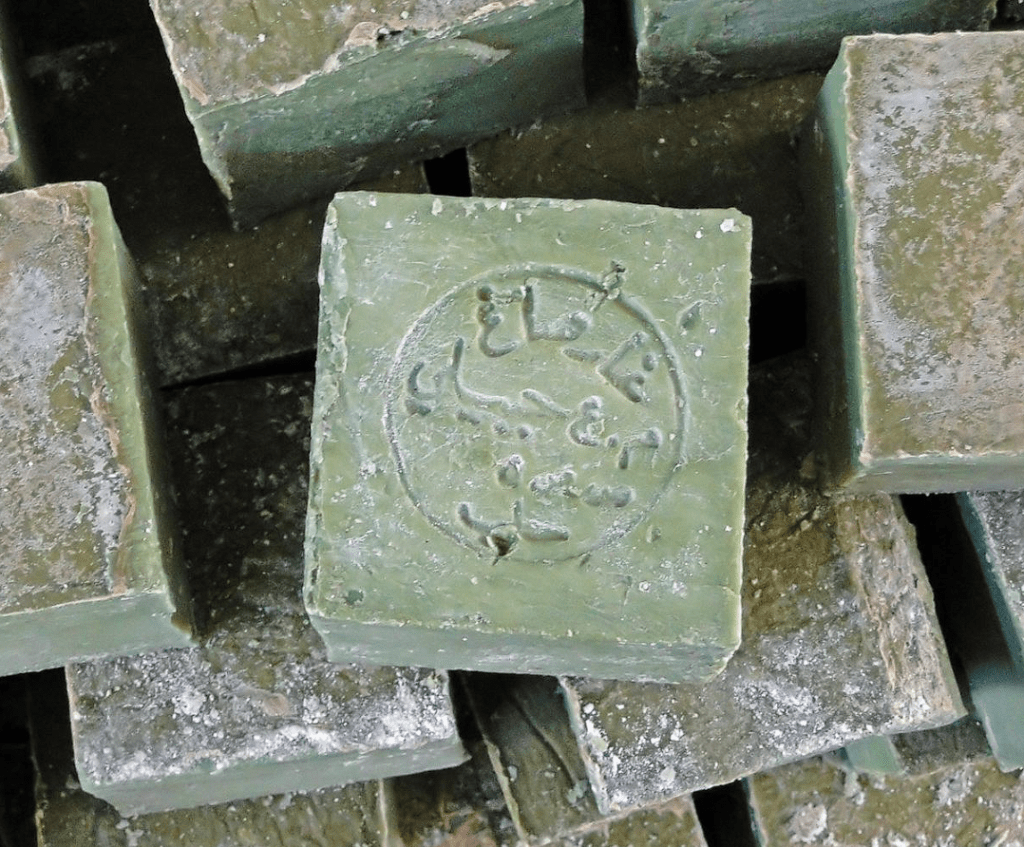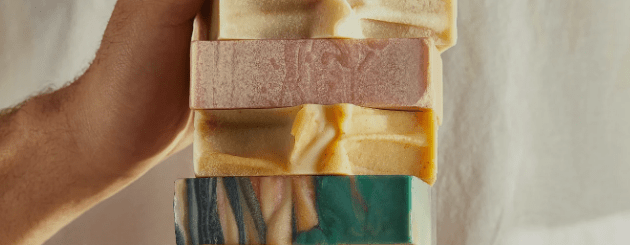In Egypt’s evolving craft scene, a quiet revival is taking shape. Artisans are rediscovering ancient soap-making traditions, infusing hand-cut bars with olive oil, laurel berries, and heritage.
These soaps, often stamped with artisanal insignia, offer more than skincare: they reflect a lifestyle rooted in cultural memory and give small local brands space to flourish in a modern market.
Heritage & Origins
Often referred to as “Aleppo-style,” this traditional soap traces its roots to the Syrian city of Aleppo. Known locally as ghar soap, it’s crafted from olive oil, laurel (bay) oil, water, and lye using a centuries-old hot-process technique.

UNESCO’s recognition of Aleppo ghar soap craftsmanship underscores key traditional practices: the use of wild-harvested laurel berries, a winter-based production cycle, and extended ageing over several months.
While the exact origin story is lost in time, the soap is widely considered one of the oldest continuously produced commercial soaps in the region.
For Egypt, the interest lies not just in using olive oil (which is abundant in the region) but in reviving a craft that sits at the intersection of tradition, natural materials and artisan production.
The Traditional Process & Craftsmanship
Classic olive-and-laurel soap is made from a simple yet precise blend of ingredients: olive oil forms the moisturising base, laurel (bay) berry oil adds antiseptic and aromatic qualities, its concentration often marking the soap’s grade, and water combined with lye triggers the saponification process.
While the formula is straightforward, the method requires skill, and modern Egyptian studios are now adapting this age-old craft with contemporary techniques and design sensibilities.

Small Brands & the Lifestyle Market in Egypt
The resurgence of olive and laurel oil soap reflects a wider movement in Egypt toward artisanal beauty, natural ingredients, and locally made brands.
Among Egypt’s craft soapmakers, several brands are putting olive oil at the center of their formulations, using it as a heritage ingredient rooted in Mediterranean wellness. Nefertari offers a line of olive oil soaps, free from preservatives and artificial colors, and positioned as both skincare and a cultural craft.

Another crafter, Dhyaan House, sells a minimalist “Natural Handmade Olive Oil Soap” bar, highlighting simplicity and skin compatibility for all types.

Social & Cultural Impacts
The revival of traditional soap-making in Egypt supports small workshops and artisans, offering an alternative to large-scale industrial production. It also strengthens rural olive oil value chains and brings renewed attention to heritage crafts rooted in regional identity.
Beyond function, these soaps carry cultural meaning: olive oil reflects Mediterranean heritage, while laurel oil evokes ancient Levantine traditions. For Egyptian makers, embracing this craft allows them to position their products as artisanal rather than purely commercial.
Conclusion
The revival of artisan olive oil in Egypt is more than a niche beauty trend. It is a movement that touches craft, heritage, identity, wellness, and entrepreneurship. For the soap-maker, each bar is a small act of cultural continuity and modern branding. For the consumer, each bar offers something tactile, story-filled, and authentic in a world of mass production.



